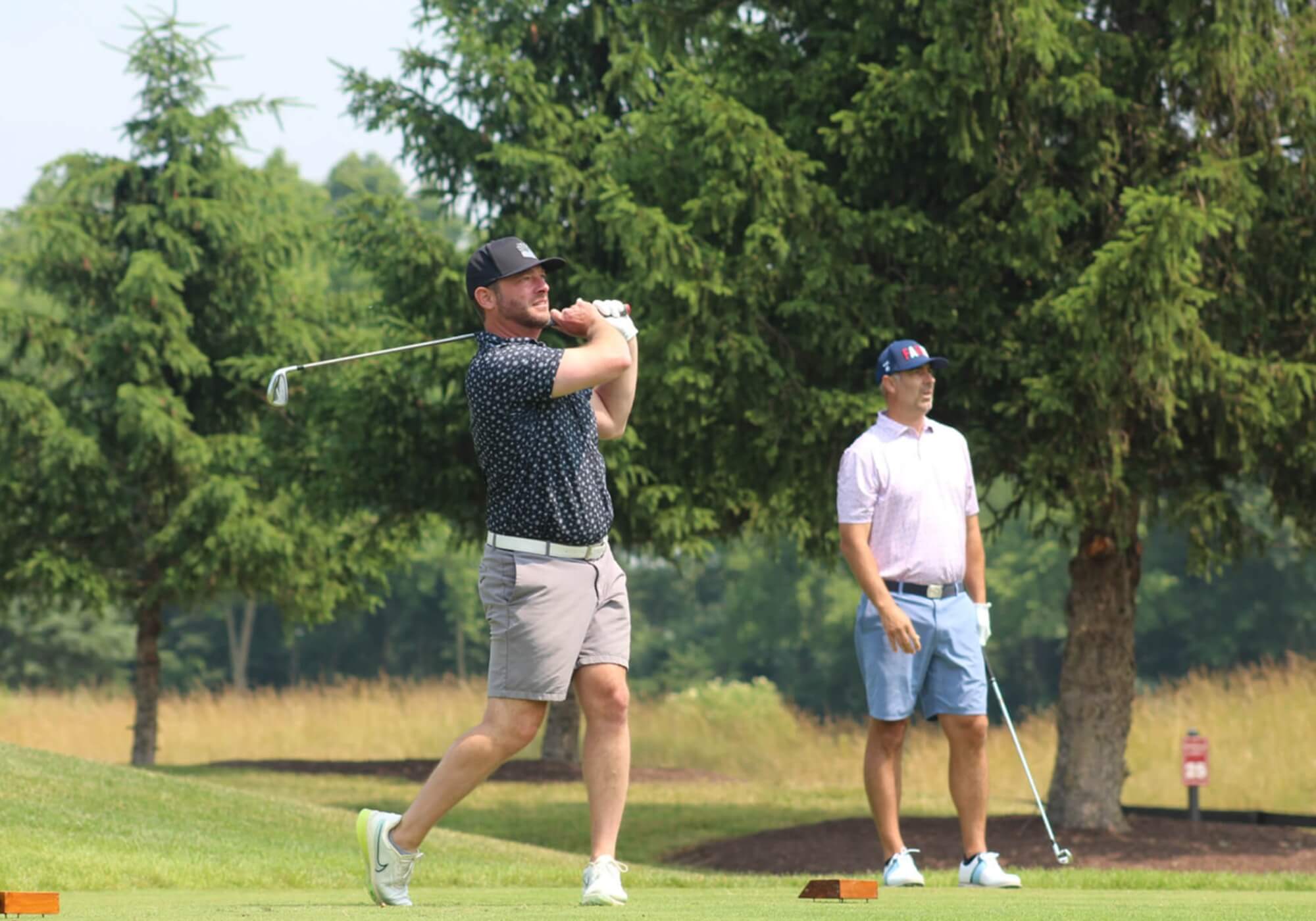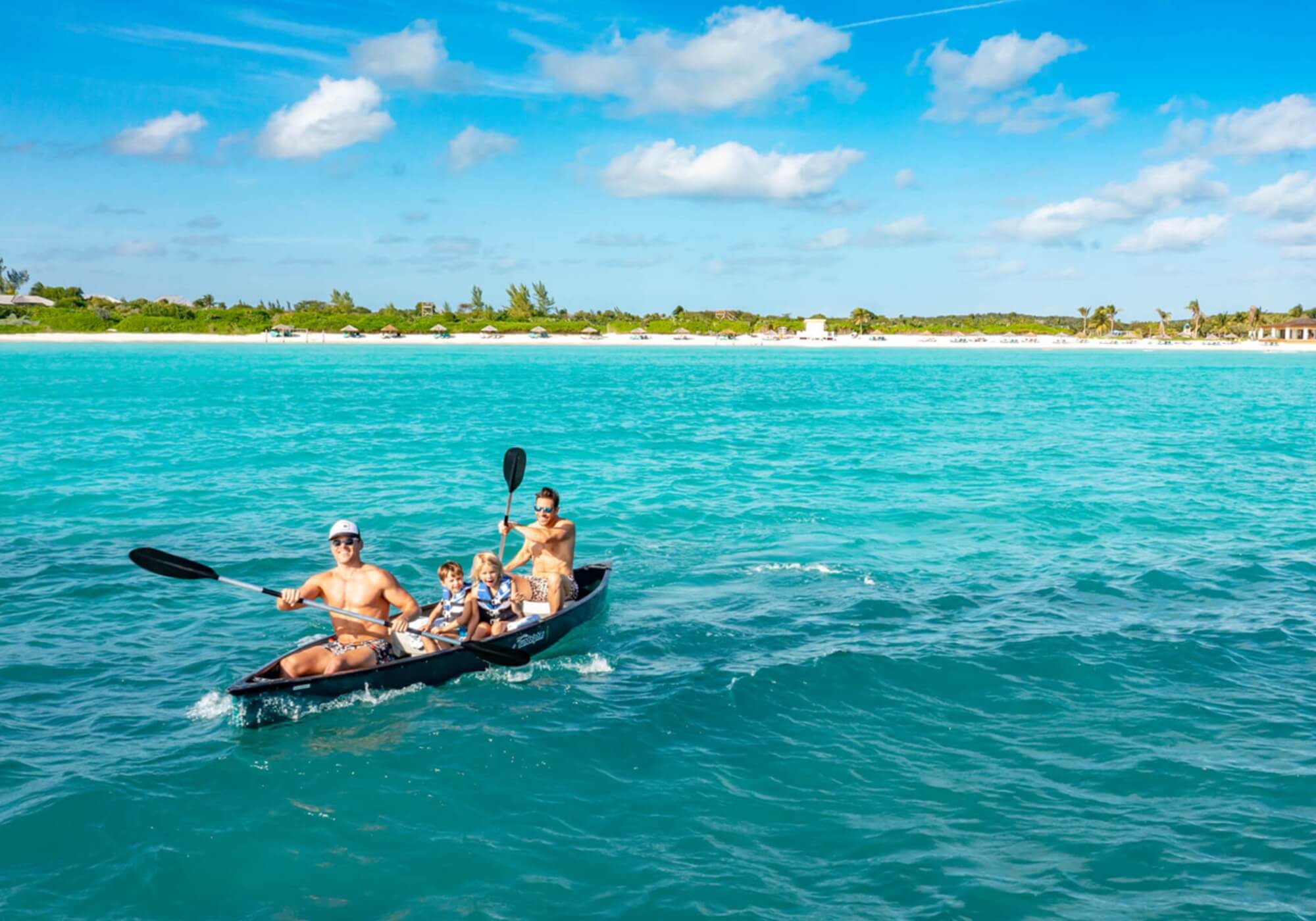Golfing News & Blog Articles
A Club With An Official “No A-Holes” Policy? I Am SO In!
I’m a faithful follower of the Groucho Marx School of private clubs.
I would never want to belong to a club that would have someone like me as a member.
That said, I’m not sure how I feel about the private courses in the Southworth stable of golf clubs. The Boston-based golf community developer/operator has recently instituted a formal, written “No A-Holes” policy for its properties.
Yes, you read that correctly. No A-Holes. You can fill in the missing letters.
Why am I ambiguous? Well, if I applied and they let me in, I’d have to apply Groucho’s law. If I applied and they didn’t let me in, well…
Hey, if the shoe fits, right?

“No A-Holes” is the informal name of Southworth’s policy. Officially, it’s known as “The Southworth Way.”
“It’s not a set of rules,” Southworth President Tommy Southworth tells MyGolfSpy. “It’s just a commitment to respect each other.”
I’m not sure whether the policy itself is truly unique (Southworth himself believes it is) but I can say the story behind the policy might be one of the more interesting things you’ll read today.
What is Southworth and why does it have a “way”?
The origins of Southworth date back to 1991 on Cape Cod. Tommy’s father, David Southworth, and then-Reebok CEO Paul Fireman co-founded Willowbend Development in the town of Mashpee. The project included a 27-hole championship course and a luxury home development.

Fireman retired from Willowbend in 2005. David and new partner Joe Deitch rebranded the company Southworth Development (eventually just Southworth) with sights on expanding the group’s portfolio.
“They had two informal rules,” says Tommy. “No A-holes and no stupid rules. That’s basically been our guiding principle from the outset.”
Tommy grew up in the business, starting as a cart boy at Willowbend at age 14. He came up through the ranks, working as a greenskeeper, bartender, pool manager and in banquet setup. By the time he became president six years ago, Southworth had expanded to include five private golf courses, many featuring upscale residential communities.

Not long after Tommy took over, COVID hit.
“Demand for golf doubled but our staffing was cut in half,” he says. “Our longest-serving and best employees stayed but most of our seasonal employees left. Inevitably, that led to bad service.”
That, of course, was a problem throughout the hospitality industry.
“We were providing bad, stressed service and had some challenging interactions with members,” Southworth admits. “In some cases, they were rightfully upset and, in some cases, they were unrightfully upset.”

The formal “No A-Holes” policy takes shape
Post-COVID, Southworth and his team realized that while “No A-Holes” was a great philosophy, it needed to be a policy.
“We had a clause in our membership document that said bad behavior might be punished or whatever, but that was it: one sentence in a 40-page document.”
He also looked at what other clubs were doing and found they were all doing pretty much the same thing: one sentence in a huge membership document.
“We knew this was a need but we really saw it as an opportunity,” he says. “We felt we could really differentiate if we came up with a code of conduct that would govern how we interact with each other.”

The each other part is important. The No A-Holes policy doesn’t just cover members. It applies to staff and management as well.
“It’s a community guidelines document that governs how the staff interact with the members and each other and how the members interact with the staff and each other. It also outlines ownership’s role and our collective commitment to creating a great culture and a great community.”
Don’t be “that guy”
If someone dresses down a waiter or yells at a powerless staff member, that someone is probably not a nice person. That someone also won’t last long as a Southworth member.
“If you yell at a waiter, we’re probably not the club for you,” says Tommy. “Our salespeople usually know within the first five minutes whether someone is going to fit in or not.”
The Southworth Way document is plain and simple. Management and staff commit to providing members with the following:
Respectful interactions An effort to always improve A desire to make your experience as easy and seamless as possible A willingness to listen to and work to incorporate feedback An open and welcoming Southworth familyMembers are asked to make a reciprocal commitment to fellow members and to staff.
Treat each other as family. Welcome new and old members as part of that family. Be courteous to staff and management, especially when things go wrong. Use respectful language and appropriate behavior in all interactions. Offer complaints and constructive criticism productively, to the right audience and with the right tone. Commit to a zero-tolerance policy for discrimination in any form.
Policy or not, things are bound to happen
Policies are one thing. How they’re enforced is another entirely.
“If you do something like speak rudely to someone once, we’ll probably have a conversation,” says Tommy. “It’s about protecting our staff and making sure they’re being respected by management and the members.”
Depending on the severity of the incident, there might be a small suspension.
“It would have to be something fairly egregious, like inappropriate physical contact or blind rage, alcohol-fueled behavior. When that happens, we try to do right by our staff.”

The program appears to be working. Southworth says each club might have five or six “conversations” per year, usually over something small. Those incidents are often resolved with a simple heartfelt apology. There have been occasions, however, that resulted in expulsion from the club.
“We try to adjudicate things fairly. But at the end of the day, this isn’t a court of law. We just try to do what’s right.”
About those stupid rules
Southworth still owns Willowbend and also owns The Renaissance in Haverhill, Mass., and Creighton Farms in Northern Virginia. In 2014, it bought the Abaco Club in the Bahamas, a Ritz-Carlton Club owned by Marriott. Southworth also built the David McLay Kidd-designed Machrihanish Dunes on the Kintyre Peninsula in Scotland. They’re working on a second course there, along with a third hotel, 50 new golf cottages and enhanced resort amenities.

All of these properties follow both the “No A-Holes” policy and the “No Stupid Rules” directive.
“Old-school clubs tend to end up with a litany of rules put in place because some board member got upset about something along the way,” says Southworth. “It becomes prohibitive for people to have an easy, relaxed and fun time at the club.”
You won’t find any specific rules regarding dress codes, cell phone usage or on-course music. However, that’s not to say life at a Southworth property is like freshman year at Faber College. The overriding principle is to be respectful and don’t annoy anyone.

“If you need to take a phone call or you want to play music on the course or if your shirt’s untucked, as long as you’re not bothering other people, go have fun.
“That’s the impetus for the No Stupid Rules rule. We’re here to have a good time.”
Would you join a club like this?
Have you ever been a guest at one of those stodgy old-school clubs Southworth was talking about? You do feel like people are watching you to make sure you don’t laugh too loud or, God forbid, have too much fun.
“That’s the last thing we want at our clubs,” says Southworth. “We want you to have fun and feel comfortable.”

It does seem to work. The average member has been with Southworth roughly 28 years, while staff tenure is impressive for the hospitality industry. The longest-serving employee has been with the company for 34 years.
Southworth says two key indicators tell him if his company is doing its job. One is how many member obituaries mention the club as one of the tent poles of their life. The other is second-generation member-on-member weddings, which are usually held at the club.
“These are kids that have grown up together at the club and have gone on to get married,” he explains. “That’s a cool indicator of the community we’ve built.”

It’s easy to be cynical about a property developer who uses the word “community” as much as Southworth does. But being a cynic for cynicism’s sake might cause you to miss the fact that some people just seem to get it.
“Building a community is what gets us out of bed. There’s research that says human connection is the No. 1 source of happiness and longevity. You’ll live a longer and happier life if you have warm, positive human connections.
“At the end of the day, that’s the business we’re in.”
The post A Club With An Official “No A-Holes” Policy? I Am SO In! appeared first on MyGolfSpy.


